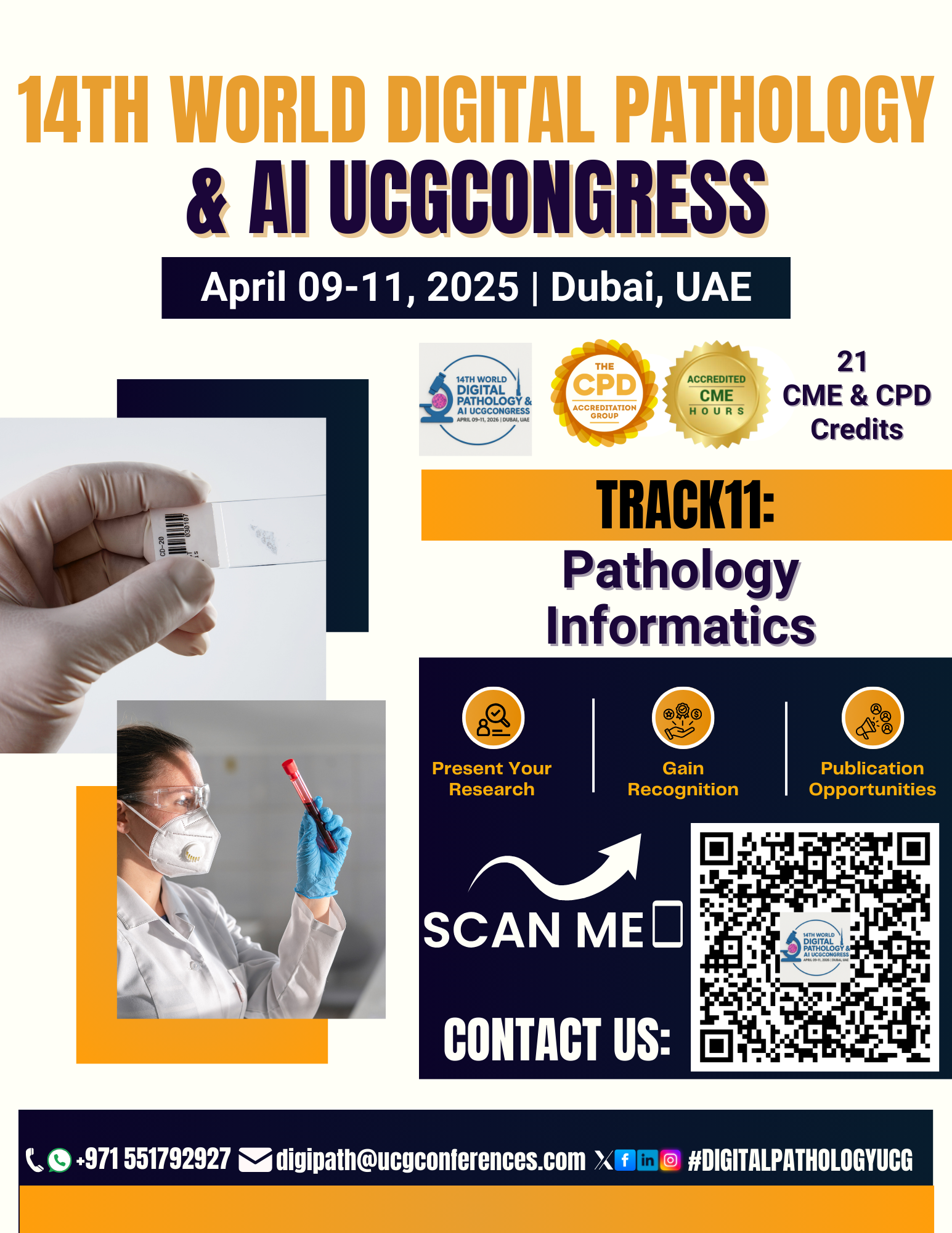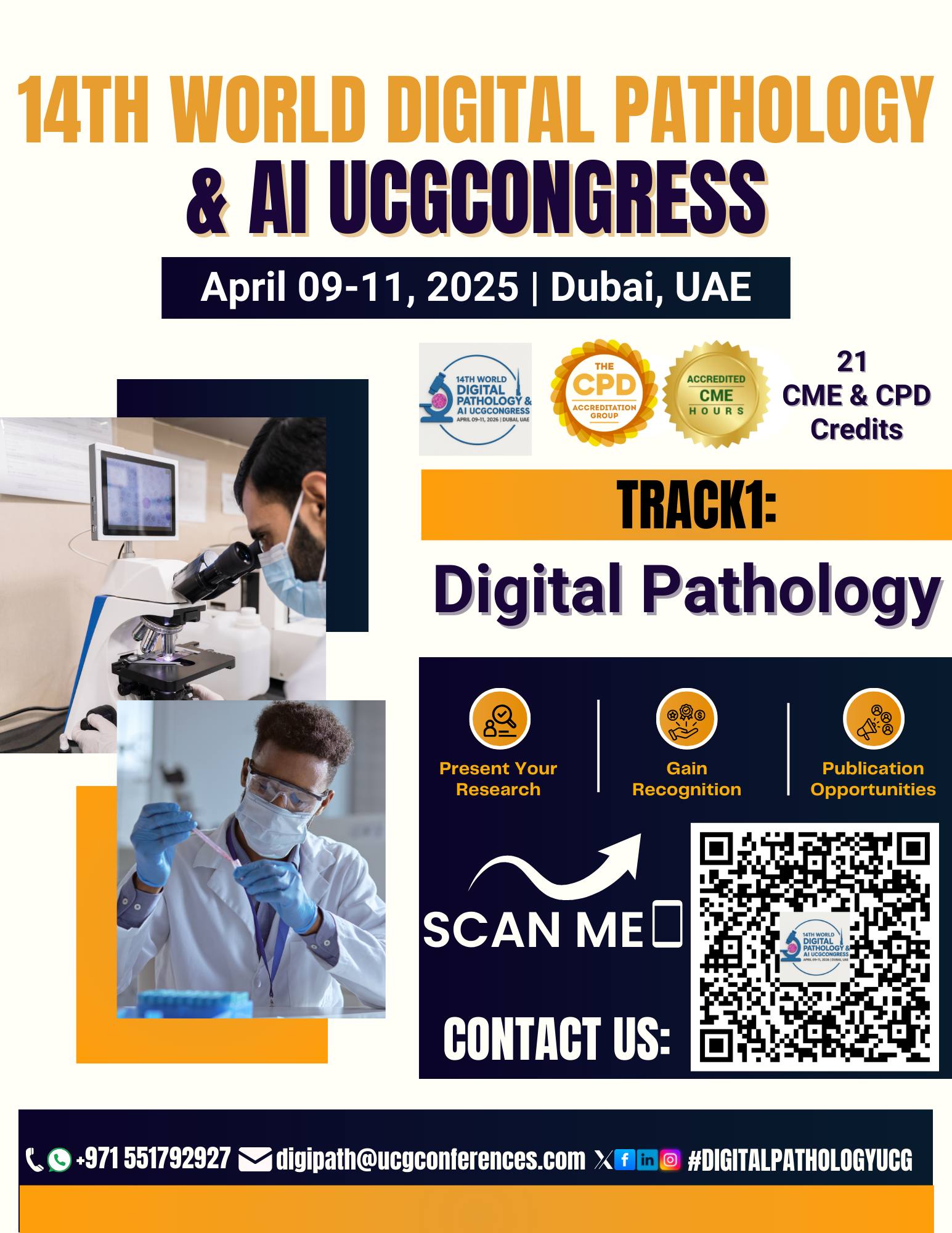



Sub track:-
Enhanced Image Quality Quantitative Analysis, Faster Turnaround Times,...

Sub track:-
Integration of Imaging Modalities, Advanced Image...

Track Overview:
Pathology
Informatics is the integration of information technology, data analytics, and
computational tools into pathology practice to improve the accuracy,
efficiency, and quality of diagnostics. This track will explore how informatics
is transforming pathology workflows through digital data management, advanced analytics,
and seamless integration with other healthcare technologies. Attendees will
learn how pathology informatics enables better data sharing, decision-making,
and overall patient care.
Key Topics:
Data
Management in Pathology:
Techniques for organizing, storing, and managing large volumes of pathology
data, including digital slides, patient records, and molecular data.
Integration
with Electronic Health Records (EHR): How pathology informatics integrates
pathology data with EHR systems to create a unified patient record and
streamline clinical workflows.
Clinical
Decision Support Systems (CDSS):
The role of informatics tools in providing pathologists with decision support,
improving diagnostic accuracy, and assisting in treatment planning.
Big
Data and Advanced Analytics:
Leveraging big data analytics to identify trends, predict patient outcomes, and
optimize diagnostic processes in pathology.
Telepathology
and Data Sharing:
The use of informatics solutions to enable remote pathology consultations and enhance
collaboration between institutions, ensuring timely diagnoses.
Security
and Compliance in Pathology Informatics: Addressing data privacy, cybersecurity,
and regulatory compliance (such as HIPAA) in the management and sharing of
pathology data.
Learning
Objectives:
Understand
the role of informatics in modernizing pathology workflows and improving
diagnostic accuracy.
Learn
about the integration of pathology data with EHRs and other healthcare systems
for comprehensive patient care.
Discover
the benefits of clinical decision support systems (CDSS) in pathology practice.
Explore
the use of big data and analytics to improve pathology processes and patient
outcomes.
Gain
insights into telepathology and data sharing solutions that enable remote
consultations and cross-institution collaboration.
Understand
the importance of data security and compliance in pathology informatics.
Target
Audience:
Pathologists,
healthcare IT professionals, data scientists, informatics specialists,
laboratory directors, and clinicians interested in integrating informatics into
pathology practice.
Speakers/Presenters:
Experts
in pathology informatics and digital health technologies.
Researchers
and developers in big data analytics, AI, and machine learning in pathology.
Healthcare
professionals involved in informatics and healthcare system integration.
Conclusion:
This
track will provide a comprehensive understanding of how pathology informatics
is reshaping the landscape of pathology, from data management to decision support
systems. It will showcase how digital tools, big data, and AI are improving
workflows, enhancing collaboration, and ultimately leading to better patient
outcomes.